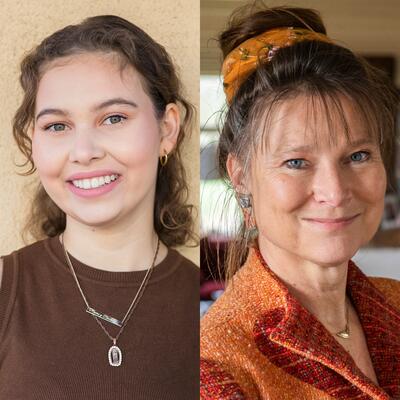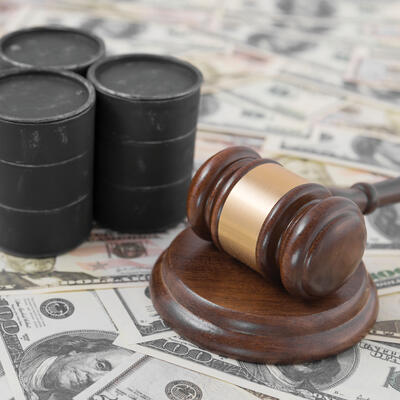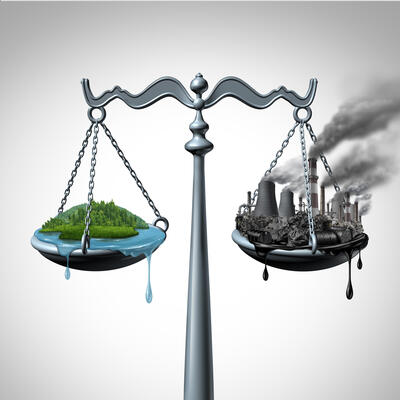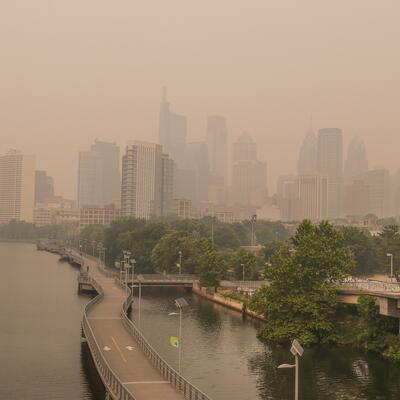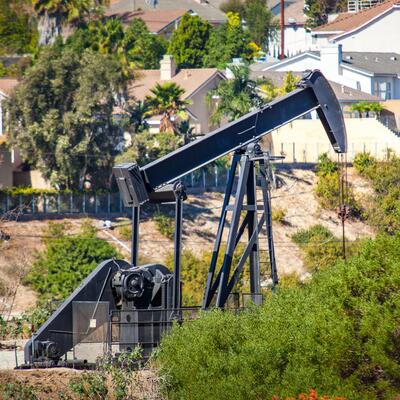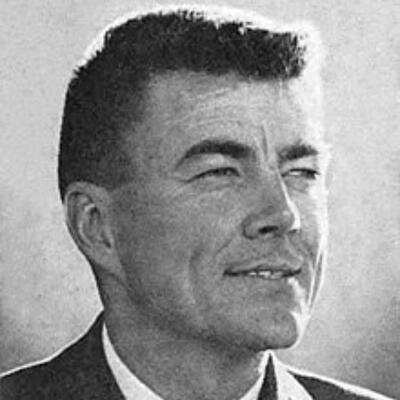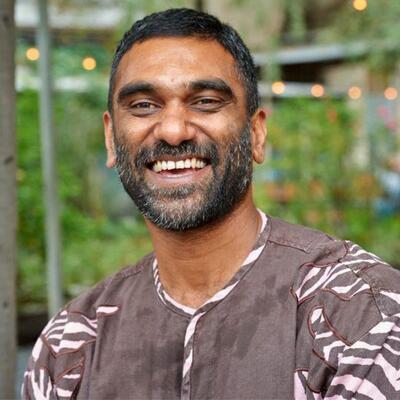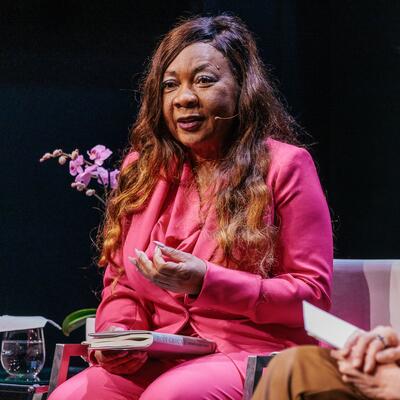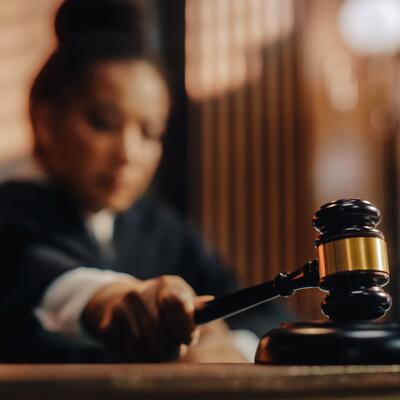
Law and Oil: Taking Climate Offenders to Court
Guests

Delta Merner
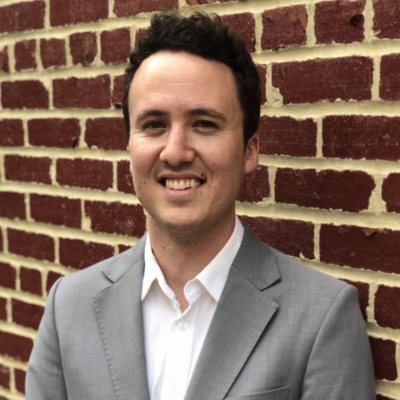
Korey Silverman-Roati
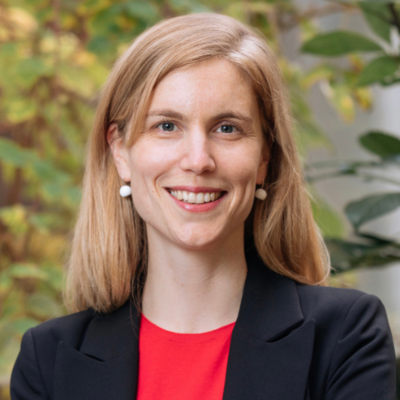
Lucy Maxwell
Summary
The last several years have seen a big increase in the number of lawsuits focused on the climate crisis. Some lawsuits challenge governments for their support for fossil fuels and for their failure to take climate action, while other cases target the fossil fuel companies themselves for knowingly misleading the world about the climate disrupting impacts of burning their products. Some of these cases seek monetary damages, others seek to hold governments accountable to their emissions reduction pledges. As more of these cases get their time in court, how powerful can litigation be in forcing action around the climate emergency?
Episode Highlights
4:30 – Korey Silverman-Roati explains cases brought against oil majors by local governments
9:00 – Industry attempts to undermine authority of EPA to regulate GHGs
11:30 – Possible impacts of successful lawsuits against oil majors
17:00 – Delta Merner on SCOTUS decision that boosted climate lawsuits
22:00 – Delta Merner explains climate attribution science and history
32:30 – Lucy Maxwell on international climate cases currently in play
35:00 – Cases filed against governments for inadequate climate action
43:30 – Making ecocide an international crime
Resources From This Episode (3)
Full Transcript
Note: Transcripts are generated using a combination of automated software and human transcribers and may contain errors. Please check the actual audio before quoting it.
Ariana Brocious: This is Climate One, I’m Ariana Brocious.
Greg Dalton: And I’m Greg Dalton. We talk about many so-called “levers” on this show – actions that can help create big change and address the climate emergency.
Ariana Brocious: In the last several years, climate advocates have begun using a new tool to spur climate action – the courts. In the U.S., we’ve seen a rise in lawsuits filed against oil majors for their role in the climate crisis, ranging from public nuisance to racketeering, to hold them accountable for the harms caused by their decades-long campaigns of deception about their products.
Greg Dalton: Other lawsuits target state and national governments for not fulfilling their emissions reductions targets and putting future generations at risk, says Lucy Maxwell with the Climate Litigation Network.
Lucy Maxwell: We talk a lot about ambition and that remains crucial. But at a very minimum courts can play a key role in ensuring that promises are kept.
Ariana Brocious: In mid-June, a constitutional U.S. climate case brought by young people went to trial, Held versus Montana.
Delta Merner: It's really the first climate accountability case to move to trial in the US, which makes it a very important moment.
Greg Dalton: Delta Merner is with the Union of Concerned Scientists.
Delta Merner: The lawsuit was filed by 16 young people from Montana who are concerned about their rights to a safe and healthy environment. They believe that their governments actions such as promoting and supporting fossil fuel extraction and burning are making the climate crisis worse and are harming their lives. So the young plaintiffs here argue that Montana's reliance on fossil fuels is damaging important natural resources that are protected by the state's constitution, such as atmosphere, rivers, lakes, fish and wildlife.
Ariana Brocious: And the growing field of attribution science is helping provide new evidence on who bears specific responsibility for climate disruption.
Delta Merner: Studies can now tell us how much hotter a heat wave is or how much greater the intensity of a downpour is during a hurricane because of climate change.
Greg Dalton: There’s a parallel here with DNA, which was new in courts a few decades ago. Now DNA evidence is commonplace, as are scientific experts who can explain it. Courts are just starting to get into climate science and judges are literally getting schooled on this kind of attribution science - also known as fingerprinting. Based on the way things are going, climate science will likely become as prevalent in courts as DNA is today.
Ariana Brocious: We’ll hear my full interview with Delta Merner a bit later in the show. Today: taking climate offenders to court: what’s happening, who’s suing whom and how the results could alter the trajectory of our climate emergency.
Greg Dalton: It’s difficult to sue companies for selling a legal product - fossil fuels - that everyone uses every day. A couple years ago Exxon prevailed over New York State in a suit alleging the company misled investors about the future risks and costs of climate disruption.
Ariana Brocious: But Exxon and Chevron did suffer a defeat recently when the US Supreme Court declined their request to transfer a group of state and local suits to federal court.
Greg Dalton: Those cases - filed by the state of Rhode Island and municipalities in California, Colorado, Hawaii and Maryland - are suing the companies for damages caused by wildfires, floods, and more.
Ariana Brocious: We talked with an oil industry lawyer involved in those cases. He accepts the science but says climate should be addressed in Congress, not the courts.
Greg Dalton: When he said that I noted that the American Petroleum Institute lobbies against climate legislation and the adoption of EVs. So they want Congress to handle it but then block them from doing just that.
Ariana Brocious: And that’s when things got tense and he changed his mind about joining us for an interview.
Greg Dalton: We’re open to talking to him or other oil industry lawyers another time because we do believe that energy companies need to be part of the conversation.
Ariana Brocious: Right. Let’s get back to talking about the U.S. cases that are moving ahead.
Korey Silverman-Roati: In 2017 cities, counties and states all across the country started filing suits in state courts against fossil fuel companies. Alleging that the fossil fuel companies deceptively marketed their products as safe.
Ariana Brocious: Korey Silverman-Roati is a Senior Fellow at the Sabin Center for Climate Change Law at Columbia University. He’s been studying the two dozen or so cases filed against fossil fuel companies by local governments who are trying to recover some of the costs from dealing with climate disruption. I talked with him to get a sense of the bigger landscape of these cases against oil majors.
Korey Silverman-Roati: So they knew that their fossil fuel products were unsafe, they presented them to the public as safe. And as a result, the public used them, burned them and now we’re seeing climate change effects in the form of heat waves, flooding and sea level rise. And now cities, counties and states all across the country are having to foot the bill for those expenses.
Ariana Brocious: Most of these cases against fossil fuel companies rely on the same suite of legal arguments. One of those is what’s termed public nuisance.
Korey Silverman-Roati: So these are claims that state courts are used to hearing that a company violated a duty that it owes to the public and it should have to pay the public or in this case the state or local governments for those harms. So say the fossil fuel companies products, you know, caused sea level rise, causing harm the city has to pay to deal with that. And they're saying the fossil fuel company’s products are the reason why this happened they should have to pay.
Ariana Brocious: Another category of cases center around “failure to warn” and deception.
Korey Silverman-Roati: So that's where the fossil fuel companies knew that their products were harmful. Put them out into the public anyway, sold them and said that they were safe and put marketing campaigns forth saying that they were safe. And then those products cause harm and they should have to pay for those harms is what these plaintiffs are saying.
Ariana Brocious: There’s a similar category of consumer protection claims which say companies can't do this type of behavior. And there’s one newer category of argument – racketeering.
Korey Silverman-Roati: And those are claims that these companies engaged in a pattern of conspiratorial behavior that defrauded the public. These are laws that were initially drafted to prosecute the mob or organized crime but have since been used against industry like tobacco and opioid manufacturers.
Ariana Brocious: When I hear racketeering I think of men in suits getting handcuffed and led away… but these are civil not criminal cases. So even if plaintiffs prevail we won’t see oil execs behind bars. But Silverman-Roati says we could see fossil fuel companies required to pay major damages or be subject to injunctions, essentially making them stop certain activities.
Korey Silverman-Roati: And it’s important to note that the plaintiffs aren’t asking for these fossil fuel companies to be shuttered. They're not saying that they should be closed down they should be stop allowed from doing their business. What they’re saying is that you know their activity has been illegal. They been deceptively marketing their products and they should have to pay to the extent that that deception has caused harm to the public.
Ariana Brocious: So would these damages be significant enough to change behavior?
Korey Silverman-Roati: The amounts that we’re seeing alleged in these claims is significant to the tune of billions to tens of billions of dollars aggregate together to hundreds of billions to trillions of dollars. So significant impactful amounts of money that would fundamentally change the prospect of fossil fuel company’s profitability if all these were successful together, I would say. That being said, these fossil fuel companies are seeing record profits, to the tune of $200 billion for some of the top fossil fuel companies in profits alone in 2022 alone. So these companies are raking in significant amounts of money and we see that played out in the legal fights where they're able to drag these cases out. They’re able to hire solid legal representation to litigate their cases.
Ariana Brocious: That’s a key point here – the sheer financial and legal resources the industry has at its disposal, and which they employ constantly not only to delay, deny and defend themselves against these claims but also to go on the offensive, like power plants and utilities bringing lawsuits to undercut the authority of the U.S. EPA to regulate greenhouse gas emissions.
Korey Silverman-Roati: They argue that EPA does not have authority to regulate greenhouse gas emissions under these provisions of the Clean Air Act. The Clean Air Act in their words was just to handle local air pollutants, things of that nature. So EPA doesn’t have authority to regulate here and they shouldn't and they’ve been successful at least on some level the Supreme Court in limiting the scope of EPA's authority to regulate emissions. Now what's interesting is at the same time that you know power plants and utilities are making those arguments that EPA doesn't have authority in these cases, the fossil fuel companies are making the arguments that state courts shouldn’t act here they don't have any authority to act here because actually federal law governs and the Cleaner Air Act governs and EPA should be regulating here.
Ariana Brocious: And that dispute, about whether cases should be heard in state or federal courts, has delayed many of these cases for YEARS until the Supreme Court recently weighed in. We’ll talk more about that in just a bit.
As these cases finally begin to move forward, they’ll enter the phase of pre-trial discovery, which will likely reveal even more evidence of fossil fuel industry deception. More than we’ve already learned about through investigative reporting by Inside Climate News, the LA Times and others.
Korey Silverman-Roati: So we have quite a bit of knowledge already just through that investigative reporting. But what discovery can do is unearth further, deeper, more specific information about that fossil fuel company knowledge both of the dangerousness of their products and their actions to conceal that.
Ariana Brocious: Silverman-Roati says the impacts of all these ongoing cases could really begin to add up.
Korey Silverman-Roati: So if we start to see success in these cases, you know, just in the cases that are already filed that’s the significant financial penalty to a fossil fuel companies and that significant amount of money that these jurisdictions they’re gonna have in order to adapt to climate change. But there's no, you know, there's no cap on how many cases can be filed so we could see these, with successes and with wins we could see more and more cases filed throughout the country.
Ariana Brocious: The idea here is for people who use fossil fuels and the companies who supply them to pay for the damage caused by burning coal, oil and gas. Economists call those costs externalities because they are not paid at the meter or the pump but rather shifted onto society, where taxpayers often pick up the tab. Once built, wind and solar don’t have that problem – basically because they don’t involve combustion nor produce emissions.
Korey Silverman-Roati: What we’ve seen over the last 10 years is incredible drops in the prices of renewable energy and other alternatives to using fossil fuels. It's cheaper to build a solar power plant than to continue to run a coal power plant in a lot of instances. So we’re already seeing this incredibly competitive landscape where alternatives to fossil fuels are competitive. And with these cases coming online it will further tip the balance toward these alternatives towards renewables. It’s not like, you know, overnight with wins in these cases we’re going to see the companies close or we’re gonna see oil go away. But what they can do is bolster that fight towards changing our energy systems so that we are not polluting the climate, and causing these incredible harms that we’re seeing to communities.
Ariana Brocious: Korey Silverman-Roati is a Senior Fellow at the Sabin Center for Climate Change Law at Columbia University.
Greg Dalton: These lawsuits about the oil industry’s past - and current - impacts come as it is facing big questions about its future. The International Energy Agency - the world’s foremost authority on all things energy - recently issued a milestone forecast. It predicts global demand for oil to be burned for fuel will peak in just five years.
Ariana Brocious: That excludes growing demand for oil made into plastics, petrochemicals and other non-energy uses. But combined with other actions and policies, these cases could really be a powerful lever for reducing climate harm.
Greg Dalton: Later in the show we’ll hear about cases brought against national governments to keep them accountable for their climate emissions targets.
Ariana Brocious: Coming up, the growing role of climate science in the courtroom:
Delta Merner: So with this type of science we can't really sit back anymore and argue whether climate change plays a role in extreme weather or in a public health problem that we’re facing today. Because the attribution science shows exactly what that role is.
Ariana Brocious: That’s up next, when Climate One continues.
This is Climate One. I’m Ariana Brocious, and we’re talking about climate in the courts. Earlier we mentioned a major climate case being brought in the U.S., Held v. Montana.
Ariana Brocious: Dr. Delta Merner is lead scientist for the Science Hub for Climate Litigation with the Union of Concerned Scientists. She says the core argument in this case rests on language in the Montana state constitution – language that doesn’t exist in most states.
Delta Merner: It's a pretty unique case, but it's also a really important way to really get the unique vulnerability that children and youth have for the consequences of climate change and from the climate crisis. So I think they’re pretty unique physical and psychological health and safety issues that are outlined very well by the plaintiffs in this case. And it's pretty remarkable to read through the case documents and hear the stories really of all the plaintiffs and how climate change is deeply impacting so many aspects of their lives.
Ariana Brocious: And these are climate impacts that we’re ALL experiencing, in some form or another.
Delta Merner: One of the plaintiffs, Mica, who’s 15-year-old living in Montana. He struggles with asthma and stated in his testimony that because of the wildfire smoke he’s felt like a prisoner in his home. These are very real impacts that folks are facing in many places, and it's important that kind of as a nation we’re hearing them spoken out loud and really connected to climate change that's driving a lot of these impacts.
Ariana Brocious: The trial has concluded, and now the outcome rests with Montana District Court Judge Kathy Seeley. Her decision could take months.
Ariana Brocious: Earlier in the show Korey Silverman-Roati mentioned that despite the big rise in climate litigation in the last several years, there’s been hardly any movement because oil companies have been contesting where these cases should be heard. In April, the Supreme Court declined to consider an argument by those companies to have cases heard in federal court and sent them back to state courts in what is viewed as a victory for climate action. Delta Merner explains there’s good reason for why these were filed in state courts in the first place.
Delta Merner: And this is because the harms that are alleged by plaintiffs in these cases, such as property damage these harms occur at the local level. And the violations and remedies that they're seeking in these cases really fall under state jurisdiction. So for example a state like California might be experiencing more severe droughts or wildfires as a result of climate change. Whereas a state like Florida might be dealing with more frequent and severe hurricanes, right. So the impacts aren't always the same. This really falls under state jurisdiction. So despite the clear state impacts the fossil fuel companies have attempted to really mischaracterize the cases in order to have them dismissed on the basis of what's called federal preemption. And what's important to note here is that these cases do not seek to regulate emissions or to change climate policy. Both of those, if those were parts of those cases, those would fall under the jurisdiction of the federal government but those asks are nowhere in these cases. So again, the companies are really trying to mischaracterize to say that because they feel like the federal courts would be more friendly for them.
But this really wasn't a particularly remarkable decision by the Supreme Court because again the legal lines here are pretty clear. And by making that decision to not move it to the federal courts, they were agreeing with 20 appellate judges 13 federal district judges, the Department of Justice, which have all weighed in to reject these arguments from the fossil fuel industry. The industry was really using this as a delay tactic. And for some of the early cases it tied them up in court for six years. And during that time, communities have continued to be affected by climate change. So it's a really important moment right now because there's the potential for these cases to be heard in court and for communities to really seek the accountability that they're searching for.
Ariana Brocious: And we've talked before on Climate One how long the industry knew its products were harmful to the climate. And how instead of being forthcoming with this they used various tactics as you’ve just mentioned, delay, dismiss denying climate remedies climate action. How is that evidence of decades of obstruction being used in some of these cases?
Delta Merner: The disinformation evidence is really the heart of most of the US cases. So legally these are fraud cases. And they are fraud cases because they are alleging that the industry had fraudulent actions and statements that intentionally misrepresented or concealed information about climate change and climate risks for their own benefits, right. So they withheld that information from the public. So that science and that obstruction research is really the outline and the basis for all of these cases. And some of the climate impacts ties into that a little bit later.
Ariana Brocious: Do you think an approach of financial redress, which is what many of these are seeking makes sense as a piece of climate mitigation or adaptation?
Delta Merner: I think it's really, it's in a lot of ways less than mitigation and a lot more with adaptation and loss and damage, right. So there's a lot of damage that has happened because of climate change. And states and local governments are going to need to do a lot to adapt to what we already know will be coming with current projections of climate change as they are from the actions of burning fossil fuels in the past. So it makes a lot of sense to me that the cost, the burden of these projects should fall on those who created them, and who intentionally understood that their actions would lead to climate change, and that's the fossil fuel industry instead of the taxpayers.
Ariana Brocious: There’s been a growing role of what's called attribution science in climate litigation. This is data that can help us understand how climate plays a role in events and where emissions are coming from. So you work for the Union of Concerned Scientists, help us get a good picture of what attribution science is, the kinds of attribution science we’re seeing and how it's being used in some of these cases.
Delta Merner: So attribution science allows us to identify and quantify the role that human driven climate change plays in different events. Climate attribution in its current form has been around for about two decades makes it a really new science. But while climate attribution science is new the concepts really aren't. We’ve been using science to attribute outcomes to actions for a very long time. So as we know, with a lot of events you know hurricanes are impacted by climate change, but they’re not 100% caused, right. So this allows us to kind of pull apart and understand really what role climate change actually plays. So attribution studies have looked at heat waves, floods, hurricanes and other extreme weather events to understand the increased risks directly related to climate change. This is a growing field and it's really a game changer for addressing climate change. So with this type of science we can't really sit back anymore and argue whether climate change plays a role in extreme weather or in a public health problem that we’re facing today. Because the attribution science shows exactly what that role is.
What's important is to know I think is that climate attribution science there’s really two major areas. So there's event attribution and there is source attribution. And there's been really important advances in both of these areas over really just even the last five years. So I can start with talking about the event attribution, which again this tells us how climate change may have added to the severity of an event. And it's about understanding the role of climate change versus natural weather patterns or random climate variability. And studies cannot tell us how much hotter heat wave is or how much greater the intensity of a downpour is during a hurricane because of climate change.
Ariana Brocious: And I'll just jump in and say I think people have probably seen some of this in the reporting that accompanies these increasingly dramatic natural events where it’s, you know, we hear in the news reports that this was amplified, right. So there's actually, they're able to parse by how much.
Delta Merner: Yeah, and it's been much more common in the popular media. It’s much more common in the scientific community. And we see it cited in kind of the larger scientific literature now as well. So attribution science has been cited in the latest IPCC which is the Intergovernmental Panel on Climate Change. And this is a really important moment because the IPCC is a global synthesis of climate science, which has consensus for its publication by 159 nation. So there is a lot of consensus around the science.
Ariana Brocious: And then help us understand source attribution. And I would venture to say that companies, fossil fuel companies might object to the idea that you can pin specific emissions on their industry. So how can you do that and how can you explain that to a lay person jury.
Delta Merner: Yeah. So source attribution science really does help us to identify the role of specific emission sources. So this work started back in 2013 with the publication by Richard Heede, which found that nearly 2/3 of industrial carbon emissions from the industrial revolution onward can be traced to just 90 of the largest fossil fuel and cement producers. So Exxon Mobil, BP, Shell just to name a few, right. It’s just 90 companies again that are responsible for these two thirds of carbon emissions. One of the first studies to make the connection with global warming was published in 2017 by some of my colleagues at UCS. And they found that emissions from these 90 major fossil fuel producers and cement manufacturers contributed around 42 to 50% of all global temperature rise. We also now know that upwards of 32% of global sea level rise was tied to the products of these carbon producers and that nearly half of all ocean acidification. So these are incredibly large numbers from really a small number of industry actors. A few weeks ago I published a new study with colleagues at the Union of Concerned Scientists and researchers from UC Merced. And our study takes a look it takes a really significant step forward by connecting emissions from the world's largest carbon producers to fire prone conditions and burned areas. So this really groundbreaking research addresses wildfires for the first time at a regional scale and provides clear and compelling evidence of how the fossil fuel industry emissions have influenced these devastating events. So specifically, our findings revealed that nearly 40% of the total area burned by forest fires in the Western US and Southwestern Canada since 1986 can be attributed to the emissions of these major carbon producers.
Ariana Brocious: 40%. That's almost half.
Delta Merner: Yeah, this accounts for approximately 20 million acres of forested land. And just to put that at scale that's roughly equivalent to the size of the state of Maine. So these emissions have significantly increased wildfire activity in the region. I think this is really relevant for litigation because wildfires have become a focal point in a number of climate litigation cases with nearly half of the lawsuits filed at local and state governments in the US against the fossil fuel industry referring to the wildfire in the text of the complaints themselves.
Ariana Brocious: We’ve seen scientists grow increasingly frustrated with the inaction around climate disruption and the work they produce seem to perhaps fall on deaf ears or not be taken to heart in the timeframe that we know we need to act. They’ve began to take more activist approaches, some of them. I'm curious if attribution science or serving as an expert in court cases is another avenue for scientists to help move the needle while sort of “staying in their lane.”
Delta Merner: Yeah, I think, absolutely. Scientists belong in the courts. And scientists have been in the courts for a very long time. And we see now that societal decisions and decisions around climate change are starting to be made in the courts. And we want to make sure that those decisions are informed by the best available science. And by scientists who can really engage in that space. So I think it's an incredibly important place for scientists to continue to be. Again, this isn't a unique space for scientists, but it's not one that we’re taught about in grad school or that we naturally think of is outcomes from our work. But I would love to change that. I would love to see more scientists really thinking about how their own research can be relevant to climate litigation and think of judges as an audience for that. So trying to communicate to ensure that a broader scope of people can really understand what the outcomes of their research means.
Ariana Brocious: There are a lot of cases that are active right now and moving at their own individual pace. We touched on Montana, Held versus Montana. Is there another case that to you is representative of something special or that you're paying particular attention to right now?
Delta Merner: Yeah, I mean I think that they're all incredibly meaningful because they're built on communities’ experiences. So they're all very different and are pulling on the real experiences that folks are having from kind of the unique standpoint. I think one of the cases that is might be worth noting, and we’re just starting to see kind of how the legal theories are changing here, but is the case in Hoboken, New Jersey. So Hoboken recently refiled their suits and it now includes RICO charges as part of the claims that they're making in their lawsuit. RICO charges are racketeering arguments that draw on laws that combat organized criminal activities. So it's the Racketeer Influenced and Corporate Organizations, kind of known as RICO. So folks have mostly heard about RICO charges in alignment with the mob and kind of the Mafia in the US. But RICO charges have been used kind of for similar large disinformation campaigns before with the tobacco industry and with opioids. Instead of just identifying the disinformation RICO charges really get at the organization that happens around the disinformation and the coordinated effort for fraudulent behavior.
Ariana Brocious: That's fascinating. But we will keep an eye on this and perhaps have you back on the show to give us an update, you know, as things progress through the courts. Dr. Delta Merner is lead scientist for the Science Hub for Climate Litigation with the Union of Concerned Scientists. Thank you so much for joining us on Climate One.
Delta Merner: Wonderful. Thanks so much for having me.
Ariana Brocious: You’re listening to a Climate One conversation about taking climate offenders to court. Our podcasts typically contain extra content beyond what’s heard on the radio. If you missed a previous episode, or want to hear more of Climate One’s empowering conversations, subscribe to our podcast wherever you get your pods.
Please help us get people talking more about climate by giving us a rating or review. You can do it right now on your device. You can also help by sending a link to this episode to a friend. On our new website you can create and share playlists focused on topics including food, energy, EVs, activism.
This is Climate One. Coming up, how climate lawsuits brought now can protect generations of the future:
Lucy Maxwell: Most of the climate cases against governments are forward-looking, because they’re on the basis that unless and less action is taken now, harm becomes irreversible.
Ariana Brocious: That’s up next, when Climate One continues.
Ariana Brocious: This is Climate One. I’m Ariana Brocious. We’re exploring the role of climate litigation in addressing our ongoing crisis. These lawsuits take different forms and come from different places across the world. One notable case is that of an Indigenous Peruvian farmer named Saúl Luciano Lliuya [loo-yah]. He’s suing the German energy company RWE for money to pay for climate adaptation to prevent his hometown from flooding.
Greg Dalton: Right. Climate disruption is causing glaciers above Lake Palcacocha [pal-kah-KOH-cha] to melt, raising the level of the lake and increasing the risk of flooding – which it has done in the past, killing hundreds of people.
Ariana Brocious: And thanks to attribution science we just learned about, the case identifies what proportion of responsibility for those emissions lies with RWE. In addition to cases against oil majors, there’s been a rising trend of cases against governments around the world.
Greg Dalton: We talked about one case on a recent episode of Climate One, when I interviewed Marjan Minnesma [MAHR-ee-ahn Min-ESS-muh], founder of the Ur-gen-da Foundation. Her group brought a successful suit against the Dutch government that resulted in a 2019 decision by the Dutch Supreme Court that the government had a legal obligation to protect its citizens from climate change. And it required that the country cut emissions sharply and quickly.
Ariana Brocious: Lucy Maxwell is Co-Director at the Climate Litigation Network, a program of the Urgenda Foundation. I asked her about the impact of a different Dutch case – in 2021, a court in the Netherlands ruled that the oil company Shell is responsible for its own CO2 emissions and that it must reduce them by 45% compared to 2019 levels.
Lucy Maxwell: The Shell decision of 2021 was an absolute landmark case. It was a global first in terms of companies’ legal obligations regarding climate action. And we know that it sent ripples through boardrooms around the world. Because for the first time a court found that a company had a legal obligation to do substantially more than it was doing to reduce its emissions. So we’ve seen since then a number of other companies taken to court, communities around the world inspired by that successful case in the Netherlands to replicate it against fossil fuel companies, carbon majors in lots of different contexts. So a Swiss cement manufacturer has been taken to court by a group of Indonesian fisherpeople for its contribution to the climate crisis. Again, on the basis that it has a legal duty to protect the people that are affected by its actions. And these actions have implications way outside the countries where these companies are incorporated.
Ariana Brocious: This has been described as almost a template that other countries are following. How many cases have followed the same approach and what's been the success rate with those so far?
Lucy Maxwell: Right. So the Shell case is quite a new development it’s only in the last couple of years. So we haven't yet seen the full effect of cases that try and replicate that particular strategy. But there have been new cases filed against companies in France in Germany. There’s a case in New Zealand against a number of big fossil fuel emitting companies. A lot of these are sort of wait and see in terms of the success rate. They haven't really gone through the courts very far yet. So we really have to see how that plays out in terms of corporate liability. But one area where we have a lot more experience and court decisions to look at trends is in the context of government liability. That has been a space of greater development of the past decade starting again in the Netherlands with a landmark decision in 2015 against the government of the Netherlands in a climate case brought by the Urgenda Foundation and more than 800 Dutch residents. That decision again sparked interest, desire to replicate it by lots of different communities around the world. And in the past eight years we’ve seen more than 80 cases filed against governments about their inadequate climate action. And we’ve got a clearer picture of how easy it is to replicate that kind of logic of government responsibility. So 10 cases against governments for their climate inaction have gone to the highest court in a country. And seven of them have led to favorable climate outcomes. So it's not just in the Netherlands, but also cases decided by the highest courts in Germany, France, Ireland, Columbia, Nepal and Brazil. And each of those courts found that it was appropriate for a court to look at a government’s climate actions and to assess whether it was in line with its legal obligations with the necessity of science. And they’ve affirmed that climate action is a legal duty and that it’s appropriate for the court to adjudicate whether the government is complying with that duty.
Ariana Brocious: In those successful cases is if we want to term them successful from a climate perspective. What wins have been achieved so far?
Lucy Maxwell: Right. So the German climate case is an interesting one. There the challenge was to what the government was doing by the year 2030. So, forward-looking challenge and the claimants were saying you’re not doing enough because based on that target almost the entire carbon budget for Germany will be exhausted if you do nothing else. And what the court accepted was that indeed if you exhaust your carbon budget almost entirely that will lead to significant freedom curtailments in the years after 2030. It ordered the parliament to go back and outline how it was gonna stay within its carbon budget and create a much fairer burden sharing of its emissions reductions over time. And then two weeks after that decision, the German Parliament increased its climate targets by 10% and it brought forward its climate neutrality target to 2045. So 5 years earlier than it originally was. So there’s a clear response immediately after a finding by a court that insufficient progress threatens human rights and fundamental freedoms.
Ariana Brocious: I think that’s so interesting because that's looking at future harm as you said even not past harm which a lot of some of the cases have argued, right? There is sort of an established data about what the harm has been to date. But that's looking forward.
Lucy Maxwell: Absolutely. And I think that's what's the most exciting aspect of legal accountability is that it's enabling action to be taken now to ensure that we don't pass thresholds of climate harms that can’t be undone. Most of the climate cases against governments are forward-looking, because they’re on the basis that we all as we know what climate science is unless and less action is taken now harm becomes irreversible. And so, courts have some familiarity with the notion of risk and that harm that’s foreseeable and serious in the future needs to be prevented by action now. And it’s through that logic that’s been established for decades in many countries through human rights law, civil law, the notions of duty of care. That forward-looking preventive legal obligations have been applied now in the context of climate change. And that's so crucial because we can't wait until the emissions are already released and the harm is baked in. The preventive action needs to be taken. I think that’s why communities are seeing the legal action as particularly useful because it has that preventive focus.
Ariana Brocious: Can you make a distinction between cases against governments compared to cases against companies like oil majors. When is it proving fruitful to challenge national governments directly to seek action and accountability rather than these companies or other major emitters?
Lucy Maxwell: Yeah, there are certainly a range of strategic and legal choices that communities make in terms of who to hold accountable and how for climate action. A lot of communities that are interested in seeing whole of government policy changes on the climate crisis want to target governments because they have the regulatory power. And so we saw during the COVID crisis that when a government treats the situation as a crisis the entire economy is changed in order to meet that challenge. And so a lot of people around the world see government responsibility as a key way for, achieving the kind of wide scale transformation that climate science says is necessary to meet the goals of the Paris Agreement for example. But selected actions against fossil fuel majors who are regulated by governments are still important because they are huge actors as we know within contemporary society. And it must be a combined effort not only targeting governments for their regulatory power but ensuring that companies set targets that are science-based, and meet those targets. So quite a lot of action against the companies is also forward-looking, looking at their climate targets as in the Shell case. Some claims also now are trying to obtain compensation from companies because of how much they have known about the detrimental impacts of the products that they sell or create. And they’re trying to obtain compensation to account for the impact of those fossil fuel products have had on people today and will continue to have as we see the effects of the climate crisis playout. There’s then another strand of litigation against companies that tries to tackle the misleading and false statements that are being made about their climate plans. I think this is particularly pernicious once we see a whole sway that net zero targets being announced and companies alleging, pledging that they have green credentials, but in fact none of their actions are meeting their promises. And that's another set of litigation greenwashing to try and make sure that company’s actions actually meet their words.
Ariana Brocious: It’s interesting too because elsewhere in this episode we speak with Delta Merner about the growing field of attribution science in climate litigation. And how there is evidence show that something like 88 companies are responsible for the vast majority of emissions. So there's actually data for the accountability to back up these cases, right.
Lucy Maxwell: Absolutely. The pioneering studies that have attributed historic responsibility to such a small group of companies. I think visualizes, it illustrates where the responsibility lies with the climate crisis. And that is really important in terms of advocacy, demands that are made outside the court and also demands that are made in the court when communities say, you have a disproportionate responsibility for the impacts that we’re seeing and here’s the evidence to show that.
Ariana Brocious: You mentioned compensation being sought by plaintiffs. And I'm curious when those cases are successful. What are we seeing that many being directed towards? Is it for sort of reparations or loss and damage payments or is it to fund adaptation strategies?
Lucy Maxwell: The area of seeking compensation against companies is still very new. And so, we haven't yet had a judgment from a court ordering a company to pay compensation. But we can see the kinds of demands that are made range from as you say funding for adaptation which is part of the claim that’s been made by the Peruvian farmer against the German electricity company RWE. There that claim looks at firstly, what you mentioned about the attribution of responsibility of that energy provider for historic emissions. And then it asks for that same proportion of responsibility in terms of the cost of adaptation to protect that community from the risk of melting glaciers and flooding. So in that case, the remedy requested is not compensation for harm suffered so far, but rather protection through adaptation measures because of the harms that will happen due to the emissions that have been released, including by that company.
Ariana Brocious: Well, to pivot slightly. The group Stop Ecocide International is seeking to create a new legal tool in this fight by getting ecocide which is defined as severe long-term harm to nature listed as an international crime and making those responsible liable for criminal prosecution. This is a little complicated it involves amending the Rome Statute of International Criminal Court. What do you think about this strategy in terms of the overall legal landscape we've been talking about?
Lucy Maxwell: I think responses to climate crisis require a plethora of tactics and strategies. And this particular campaign to have ecocide recognized as an international crime is a really important part of that set of strategies. Because it seeks recognition of the gravity of the harm that we are creating for our planet and for those that are responsible. And I think that gravity is something that can be at times hard for members of the public to appreciate when the climate crisis may not be on the front page of the newspaper every day. And so an effort like ecocide and the campaigning that surround such an initiative I think is crucial because it's about public communication as well as communication to experts with the power to make the legal changes that recognize the gravity of the climate crisis and that certain actors are responsible for contributing to it. I think a key part of what current climate litigation efforts seek to do is to use existing legal tools to hold governments and companies accountable. And I think when we’re thinking about strategies that will see the change that's needed the time period involved in any form of legislative or legal change or reform is a factor because we have such little time remaining to bend the emissions curve. And I think a lot of communities are using existing legal tools from a wide variety of areas of law to apply them to the climate crisis because there isn’t a huge amount of time to create new techniques. But I think there's room in this movement for a wide range of strategies because they have different objectives. And the public communication about the seriousness of the harms to the environment to human life caused by the climate crisis is a really important one. And if we can get recognition for that I think that will only add to greater momentum for change.
Ariana Brocious: the cases that’s ongoing right now that centers around the Peruvian farmer bringing a case against a German company. And that to me is a representative of what I hope is a range of plaintiffs bringing these cases. Though I know that in many cases its citizens also environmental groups, are there some groups that are not getting the same access to the court and is that something that we need to pay attention to?
Lucy Maxwell: Absolutely. I think we need to think we need to look carefully at who is bringing climate cases and what the barriers are to certain groups accessing the courts. two groups that are being underrepresented so far in terms of bringing climate cases are first nations communities who are often on the front line of a climate crisis. And one reason that groups who are severely impacted by the climate crisis may not be bringing claims includes under documentation of the impact of climate change in those regions because they haven't been focused upon, for example by climate scientists. And that disparity in the research and the documentation of impact can lead groups to struggle to formulate legal claims. And I think that’s something that needs to be taken into account both by the researches that work on the evidence of climate impacts and by lawyers and nonprofits when they’re thinking about who is most impacted and how can they bring their cases to court. The other group that we know is significantly disproportionately affected by the impact of climate change to people with disabilities. And yet we've seen very few climate cases focus on the adaptation obligations of governments with respect to people with disabilities in the context of the climate crisis or the mitigation needs. The need to cut emissions fast and hard because of the disproportionate impact faced by people with disabilities. And I think it's incumbent on anyone working in the climate litigation movement to think carefully about who has access to the courts and what barriers exist for communities in seeking that access to justice.
Ariana Brocious: This is a quickly evolving landscape and there's been a lot of change in just the last several years as we've been talking about. And I'm curious what you think are some of the best strategies that are going to pay dividends in terms of climate action and climate adaptation.
Lucy Maxwell: It is a very rapidly evolving area. And I think we’re absolutely focused on what can be achieved in the next seven years in the lead up to 2030, because that's when rapid emissions reduction action needs to be taken. There are two key avenues I see climate litigation taking against governments in the next 5 to 7 years. The first is ensuring that all pledges that have been made are kept. There’s a real implementation gap. We talk a lot about ambition and that remains crucial. But at a very minimum courts can play a key role in ensuring that promises are kept. Compliance litigation can only increase because courts it's very much within the traditional function of the court to ensure that the government meets legislative targets and that will be a key aspect in the coming five years. The second relates to a much newer issue which is the need for scrutiny and transparency on what governments are doing in terms of their proposed reliance on removing carbon out of the atmosphere rather than doing the hard work of emissions reductions. This has been under examined in climate litigation so far. But the longer states delay the deep emissions reductions that are needed, the more they are relying on long-term, large-scale carbon dioxide removal that we know is not feasible and it has significant feasibility in human rights implications. And that must be an issue that litigants seek transparency on and accountability for in the coming five years.
Ariana Brocious: Lucy Maxwell is Co-Director at the Climate Litigation Network, a program of the Urgenda Foundation. Thank you so much for joining us on Climate One.
Lucy Maxwell: Thanks a lot.
Ariana Brocious: Climate One’s empowering conversations connect all aspects of the climate emergency. To hear more, subscribe wherever you get your pods. Talking about climate can be hard-- AND it’s critical to address the transitions we need to make in all parts of society. Please help us get people talking more about climate by giving us a rating or review. You can do it right now on your device. You can also help by sending a link to this episode to a friend. On our new website you can create and share playlists focused on topics including food, energy, EVs, activism. By sharing you can help people have their own deeper climate conversations.
Greg Dalton is our host and executive producer. Brad Marshland is our senior producer; Our managing director is Jenny Park. Ariana Brocious is co-host, editor and producer. Austin Colón is producer and editor. Megan Biscieglia is our production manager. Wency Shaida [Shey-duh] is our development manager, Ben Testani is our communications manager. Our theme music was composed by George Young and arranged by Matt Willcox. Gloria Duffy is CEO of The Commonwealth Club of California, the nonprofit and nonpartisan forum where our program originates. I’m Ariana Brocious.
